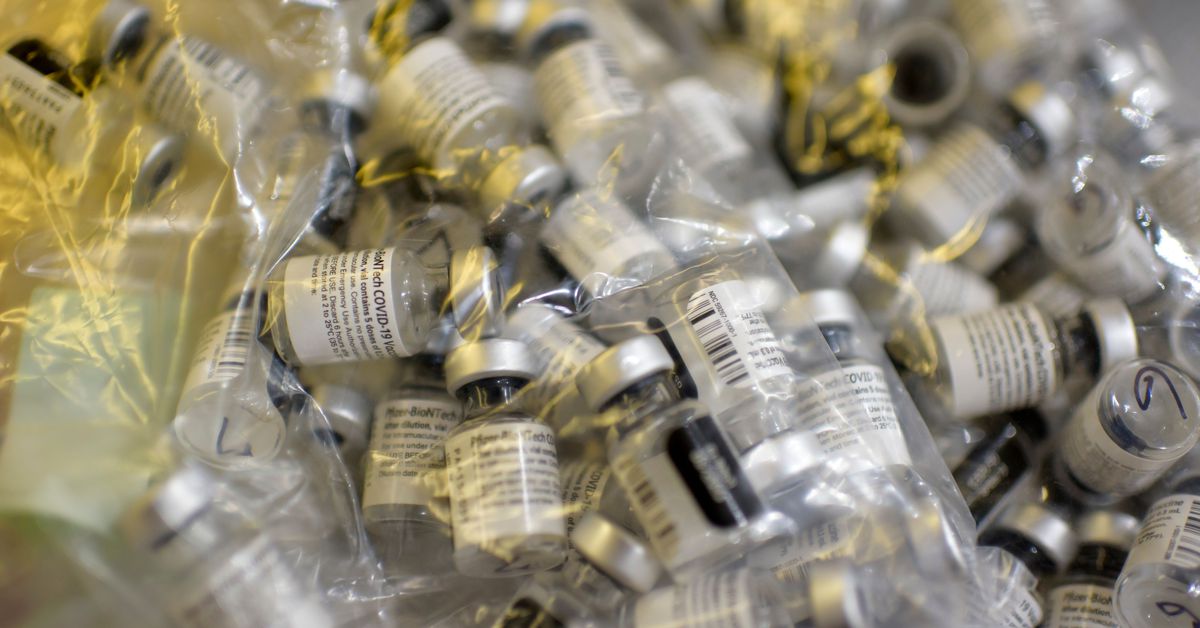Finicky COVID-19 vaccines raise the stakes of power outages
Source: The Verge added 16th Feb 2021Winter storms paralyzing the United States have left millions without power and sent health officials scrambling to protect freezers full of COVID-19 vaccines, which have to be kept at extremely low temperatures or risk going bad.
Rolling blackouts through Texas took out at least one set of freezers full of the Moderna vaccine; 5,000 doses were sent to a university, a jail, and a handful of hospitals before they expired. The Oregon Health Authority is moving vaccines to places with power, although the agency isn’t disclosing which storage sites have their systems down. As part of its storm preparations, Kentucky made sure places holding COVID-19 vaccines had contingency plans.
“For each provider they have a generator on site that is ready to go on, or they have a partner who…can immediately pack it up and provide it,” Kentucky Gov. Andy Beshear said during a press briefing last week. “That should make sure that no doses and no vials are wasted.”
Power outages are challenging for hospitals and health care facilities at the best of times. The health care system is reliant on a steady supply of power to keep people healthy. Facilities need electricity for lights, electronic health records, ventilators, and refrigerators full of medications. Many people with illnesses rely on power in their homes for things like oxygen tanks. During outages, they also can’t heat or cool their homes to counteract extreme temperatures, which can be dangerous.
Hospitals are required to have backup generators, but outpatient and community clinics don’t face the same regulations. And generators sometimes fail — the downed freezers in Texas were supposed to be powered by a backup that ended up not working.
“We’re so used to having an uninterrupted supply of power,” Grete Porteous, an anesthesiologist and emergency medicine specialist at Virginia Mason Medical Center in Seattle, told The Verge in 2019. “It really blows people’s minds to understand that all of this is very fragile.”
A public health emergency like the COVID-19 pandemic amplifies the risks of power outages. Hospitals, public health departments, and other health care facilities are already stretched thin. Many doctors aren’t used to treating patients with limited power and may have to navigate it on the fly when they’re already strapped for resources. Shelters for people without power, like warming centers in Texas, could risk spreading COVID-19 even though they’re critical to keep people from freezing.
And any facility storing COVID-19 vaccines has to devote attention to the freezers keeping them safe in addition to managing power to their health records or their oxygen supply. Doses are still limited, and any vial lost because it warmed up too quickly means fewer people can be protected from COVID-19.
The stakes of a power outage for health care are always high. But when the system is already unstable and run ragged by one emergency, a second stressor compounds the pressure to keep the lights on and the freezers running.
brands: Best Extreme Fly It One other United media: 'The Verge'
Related posts
Notice: Undefined variable: all_related in /var/www/vhosts/rondea.com/httpdocs/wp-content/themes/rondea-2-0/single-article.php on line 88
Notice: Undefined variable: all_related in /var/www/vhosts/rondea.com/httpdocs/wp-content/themes/rondea-2-0/single-article.php on line 88
Related Products
Notice: Undefined variable: all_related in /var/www/vhosts/rondea.com/httpdocs/wp-content/themes/rondea-2-0/single-article.php on line 91
Warning: Invalid argument supplied for foreach() in /var/www/vhosts/rondea.com/httpdocs/wp-content/themes/rondea-2-0/single-article.php on line 91
